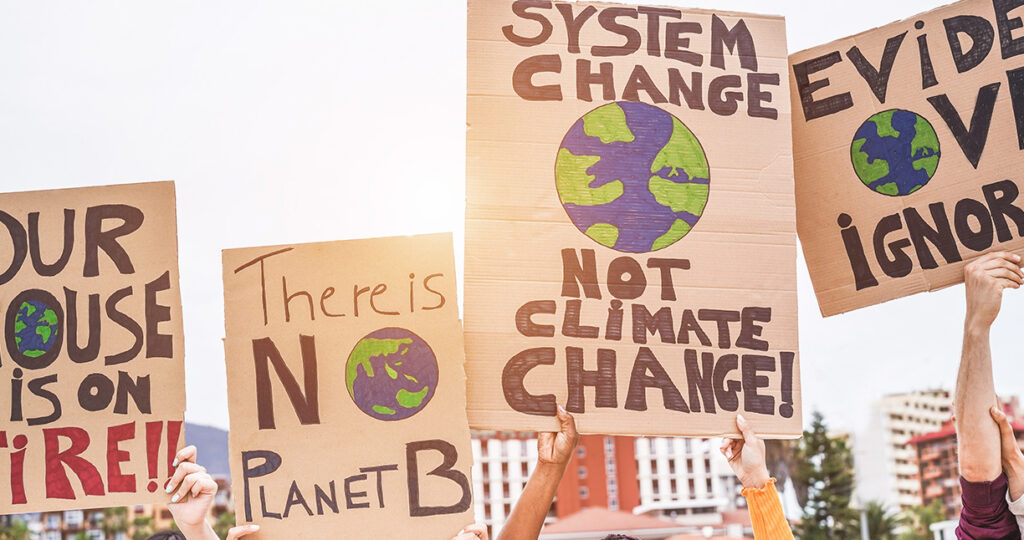Listening To Youth at the Forefront of Climate Change

Over the past few years, climate change has been increasingly known by younger generations who are seeing firsthand what is happening and what will happen to our planet. There are over 1.8 billion youth on our planet all with different backgrounds and different struggles, all of whom have the stress of climate change in common. What stems from this common stress is the union of youth who want to make a change to help save our planet by spreading awareness, becoming activists, doing research, or going to school for a degree that can make a change in our world.
“When scrolling through your social media feed, share and amplify the messages you believe the world needs to hear. Who knows maybe it’ll surge like a waterfall and change the hearts and minds of enough people to positively alter the future. That’s an incredible responsibility. I hope we use it wisely.” – Leah Thomas
Youth activists from around the world are working to hold those individuals in positions of power accountable for the damages; including the United Nations Youth In Action, Rainforest Alliance, and The Wild Center make it easy for youth to get engaged in this work. If you’re not part of the younger generation but are still interested in supporting the cause, support the youth in your life, listen when they have ideas, and empower them to take steps that can lead to change, by providing access to resources and engaging them in conversation.
“When the last tree is cut, the last fish is caught, and the last river is polluted; when to breathe the air is sickening, you will realize, too late, that wealth is not in bank accounts and that you can’t eat money.” – Alanis Obomsawim
If you would like to contribute to helping climate change from your home no matter your age here are some ideas:
- Speak up or support the people around you, by using social media, participating and becoming active in town meetings, and promoting local policies that address environmental equity.
- If possible try to start switching over to Green Energy, you can find approved examples of these at Green- E. If you are unable to do this just try and use less energy by turning off lights, unplugging, and using fans!
- Another commonly wasted resource is water. Start small by reducing the length of showers and collecting rainwater for use with plants and gardens.
- Compost and be mindful of the food you eat and waste, “Approximately 10 percent of U.S. energy use goes into growing, processing, packaging, and shipping food—about 40 percent of which winds up in the landfill.” Melissa Denchak.
- Consider alternate forms of transportation such as bike shares, electric scooters, public transportation, and carpools for shorter trips within your town.
Like this article?
Leave a comment
About Author

I am a college student and am currently working towards my marine biology degree. My goal is to become a shark biologist or do scientific research on the ocean. I previously published a children’s book titled “Our Beautiful World” to encourage kids to be curious and appreciative of the environment and the people around them. I currently run @prjectfin on Instagram where I educate and create posts on important topics about our planet. My hope is to encourage others to get educated, do better for our planet and maybe even impact the world for a better future.
- Fun Fact #1 I do taekwondo in my free time.
- Fun Fact #2 I have over 13 plants in my room the biggest one being the Monstera.
